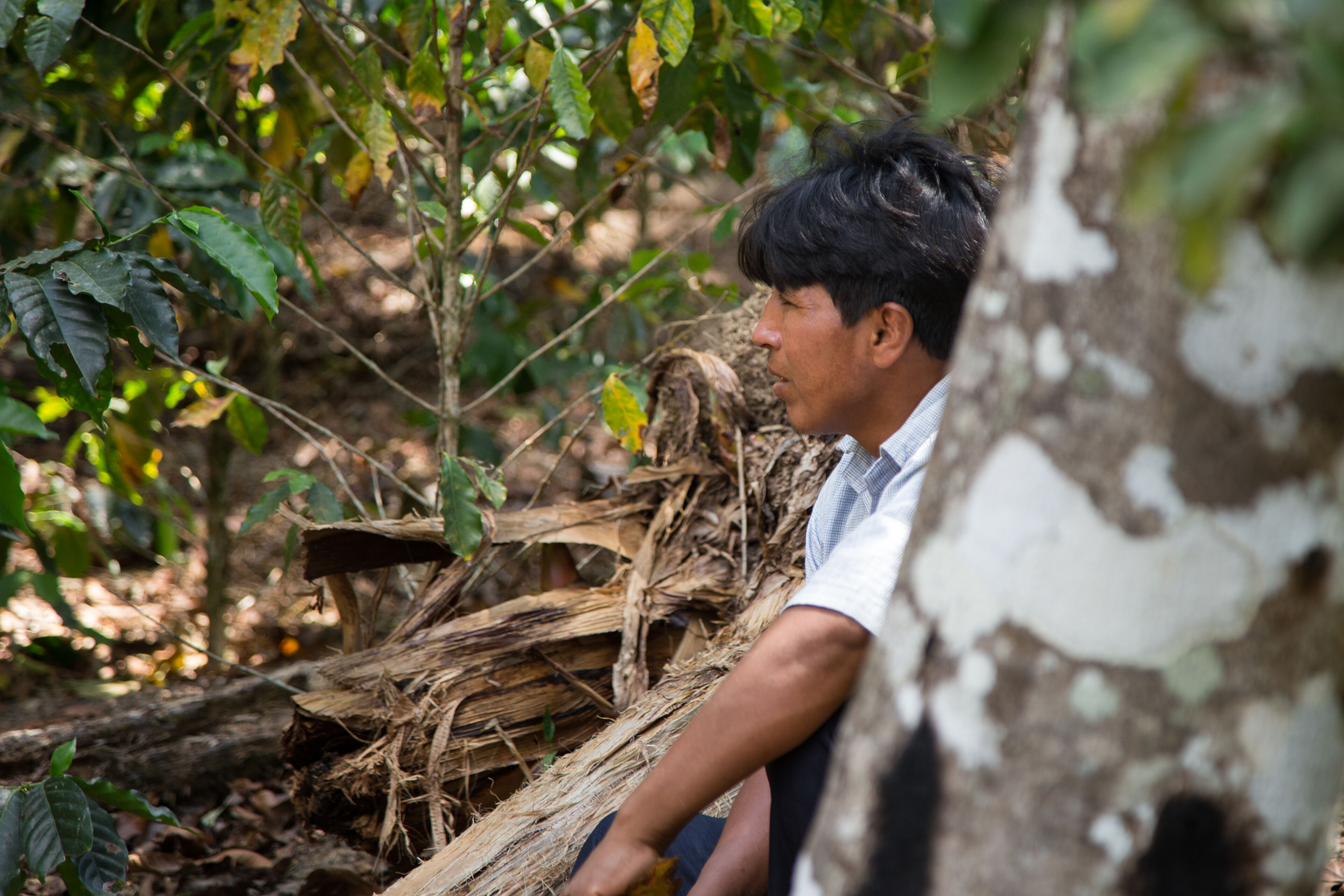La Envidia farm, surrounded by native vegetation, offers a fresh and peaceful environment, ideal for coffee production.
La Envidia
Bolivia -La Paz - Caranavi - N.Colque - Red catuai - Natural Organic
Pick your crop :
Aromatic notes:
Spot price
€/kg
La Envidia fait partie de l'héritage familial depuis plus de 50 ans
The coffee at the farm is produced using sustainable agricultural practices that guarantee the fertility of the soil and the quality of the crop. Weeding is carried out twice a year to maintain the balance of the ecosystem and avoid competition for nutrients. In addition, sanitary pruning is applied to eliminate diseased or unproductive branches, favoring the development of new shoots and the productivity of the coffee trees.
To maintain soil fertility, organic fertilizers are used with coffee pulp waste, which naturally enriches the soil and improves moisture retention. Organic barriers are also used to protect the soil against erosion. Regarding phytosanitary control, biological management of the coffee berry borer is implemented and a sanitary harvest is practiced to guarantee the quality of the beans.
Marketing tools & Certifications
POS displays, postcards, QR codes for packaging, ...
- Bolivia
Origin
region
La Paz terroir
Caranavi - La Envidia
Farm
- Nicolas Colque
Producer
Species
Arabica Variety
Red catuai
Process
Natural
Drying
Patios
Packaging
60kg - Jute bags
Altitude
1550 Area
16 hectares Harvest period
May - September Type of harvest
Manual
Terroir Caranavi

Meet Nicolas Colque
A few words about Nicolas Colque
I arrived in the Yungas in 1997, when I was 14 years old, and stayed with my grandmother. Alone and eager to get ahead, I worked planting rice and tomatoes until I saved enough money to buy my first plot of land. I learned to grow coffee by observing my neighbors and little by little I improved my techniques. Eventually, I got married and had three children, which allowed us to expand even more. In 2008 I discovered the value of specialty coffees and since then I have dedicated myself to producing them, always seeking to improve the quality to offer.
I am most proud of having built my farm from scratch with effort and dedication. I started with no knowledge, learning from my neighbors and improving every year. Now, I produce specialty coffees that have been recognized in competitions, which demonstrates the quality of the work done. I am also proud that my family is part of this process, transmitting the love for coffee to my children and assuring a future for our farm. Although I have already managed to produce high-quality coffees, maintaining consistency throughout the harvest to reach this level in a large volume is a challenge; it is an ambitious goal, but one that I am committed to.
My vision for the future of coffee is to continue improving the quality of my production and to reach the consistency necessary to export an entire container of coffee with more than 90 points. As a producer, I want to continue learning and innovating processes to ensure that my coffee is recognized for its quality in international markets. My objective is to transmit this love for coffee to my children, so that they can continue with this family legacy, maintaining the sustainability and the coffee tradition of the Yungas. My dream is to leave a legacy of excellence, where my family can continue harvesting and growing coffee.
Analyzed to the nearest gram
Find detailed physical and sensory analyzes of your coffee in the quality sheet with:
- Density
- The humidity level
- Water activity
- Colorimetry
- The sieve
- The nature of the defects
- The score and its details
- The aromatic profile (downloadable)
Equipments selection
Unit price
€ ex.tax/U
From xx products
€ ex.tax/U
Unit price
€ ex.tax/U
From xx products
€ ex.tax/U
Unit price
€ ex.tax/U
From xx products
€ ex.tax/U
Unit price
€ ex.tax/U
From xx products
€ ex.tax/U
Unit price
€ ex.tax/U
From xx products
€ ex.tax/U
Unit price
€ ex.tax/U
From xx products
€ ex.tax/U
Unit price
€ ex.tax/U
From xx products
€ ex.tax/U
